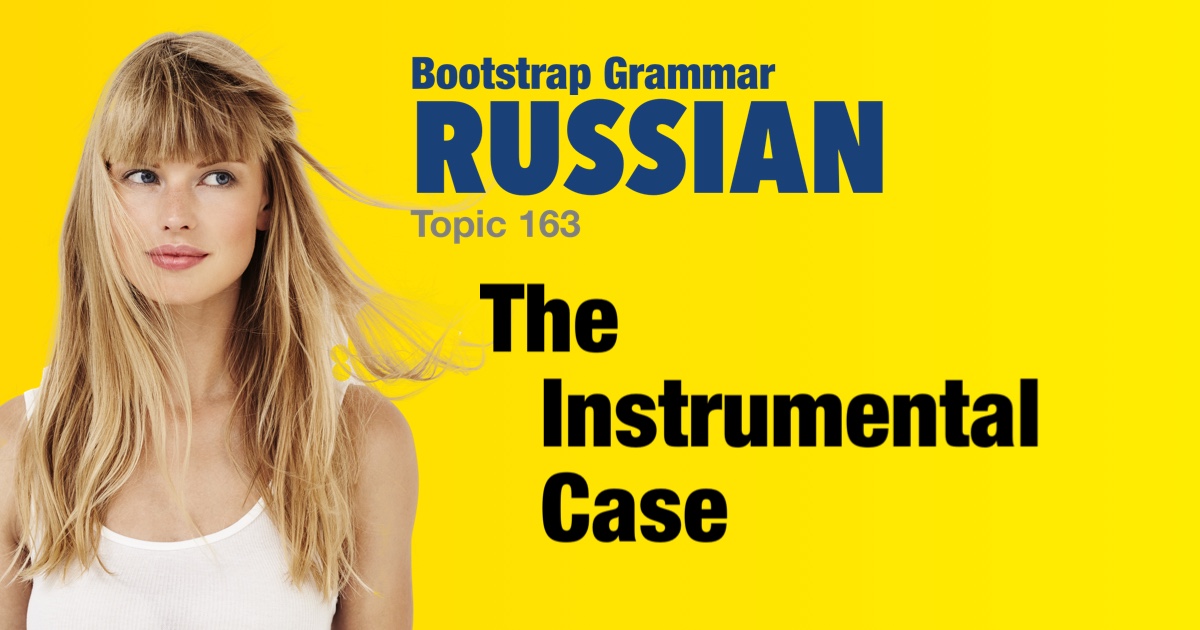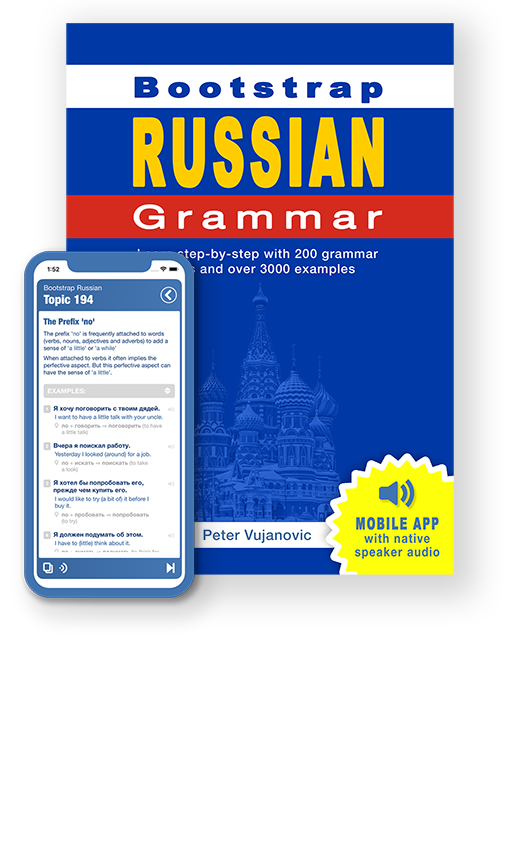Russian grammar - The Instrumental Case |
|||
|
|||
The instrumental case in Russian answers the questions кем? (with whom?) and чем? (with what?). This case is used to express the means or instrument by which an action is performed. It is also used to express whom or what accompanies an action. • In this case it is used with the preposition с. And there are several other uses which will be covered in later topics. The instrumental case singular is formed as follows: • Masc. consonant ending - add «-ом». • Masc. «-й» or «-ь» ending - replace with «-ем» • Neu. «-о» ending - replace with «-ом» • Neu. «-е» ending - replace with «-ем» • Neu. «--ие» ending - replace with «--ию» • Fem. «-а» or «-я» ending - replace with «-ой» • Fem. «-b» ending - replace with «-ью» |
| Examples: | |
|
Я ем суп ложкой.
I eat soup with a spoon.
|
|
|
Он резал хлеб ножом.
He cut the bread with a knife.
|
|
|
Олег режет мясо ножом.
Oleg cuts the meat with a knife.
|
|
|
Я открыл дверь ключом.
I (male) opened the door with a key.
|
|
|
Он ударил по мячу ногой.
He kicked the ball with (his) foot.
|
|
|
Моя дочь написала это письмо карандашом.
My daughter wrote this letter with a pencil.
|
|
|
Я ходил в театр с другом.
I (male)went to the theatre with a friend.
|
|
|
Я гулял в парке с мамой.
I (male) was walking in the park with (my) mother.
|
|
|
С кем ты смотрел телевизор?
With whom did you (informal) (male) watch TV?
|
|
|
С чем вы готовили это блюдо?
With what did you (formal) cook this meal?
|
|
|
Он пошёл гулять с ребёнком.
He went for a walk with (his) kid.
|
|
|
Я пил кофе с молоком.
I (male) had coffee with milk.
|
|
|
Мужчина с бородой.
The man with a beard.
|
|
|
Комната с видом на море.
A room with a view to the sea.
|
|
|
У меня была встреча с Виктором.
I (female) had a meeting with Victor.
|
|
|
Мы вместе с Иваном пошли на пляж.
We together with Ivan went to the beach.
|
|
|
Анна с Иваном идут в кафе.
Anna with Ivan are going to the cafe.
|
|
|
Анна с мужем идут в ресторан.
Anna and her husband are going to the restaurant.
|
|
|
Он приготовил обед с помощью Татьяны.
He prepared lunch with help from Tatiana.
|
|
|
Едем в Москву поездом.
We are going to Moscow by train.
|
|
|
Я разговариваю с матерью.
I am speaking with mother.
|
|
|
Она играет с моей дочерью.
She is playing with my daughter.
|
|
|
Почему ты пытаешься исправить это молотком?
Why are you (informal) trying to fix it with a hammer?
|
|
|
Ты должна пойти с кем-то - не в одиночку.
You (informal) (female) should go with someone - not alone.
|
|
|
Чем она нарисовала эту великую картину?
With what did she draw that great picture?
|
|
 |
|




